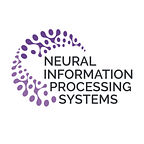NeurIPS 2021 Deadline Extension
Alina Beygelzimer, Yann Dauphin, Percy Liang, and Jennifer Wortman Vaughan
NeurIPS 2021 Program Chairs
In recent weeks, members of the NeurIPS community have reached out to us to express their concern about the toll that the pandemic is taking on our international community. We have heard from researchers — including students and postdocs — in India who are struggling to work while faced with the devastating effects of a second wave of COVID on their family and friends. In light of these extraordinary circumstances, we have received many requests to extend the NeurIPS deadline.
We have taken these requests to heart. In the history of NeurIPS, extensions have been rare — we know of only a single case of an author being granted an extension before last year — but the past two years have been exceptional. We have scrutinized the review process timeline from every angle to understand where there might be flexibility and what the tradeoffs of an extension would be. After extensive discussion amongst ourselves and consultation with the General Chair, the Diversity, Inclusion, and Accessibility Chairs, and the NeurIPS Board, we have decided to extend the deadline by 48 hours. This pushes the abstract deadline from Wednesday, May 19 to Friday, May 21 and the paper deadline from Wednesday, May 26 to Friday, May 28. Both deadlines remain at 1pm PDT (20:00 UTC).
We understand and acknowledge that a 48-hour extension will have only a limited effect in light of the hurdles that some members of our community currently face. However, we hope this decision will ease some of the time pressure that authors are facing in these last weeks before the deadline.
For transparency, we would like to explain the considerations that prevented us from issuing a longer extension.
First, we are up against hard deadlines for collecting video recordings and camera-ready papers from authors and producing the conference schedule. These deadlines are out of our control, and our original review process timeline was derived by working backwards from these deadlines. For this reason, pushing back the author notification date is something we must make every effort to avoid. Even if it were possible, changing this date would cause ripple effects with other conferences that set their deadlines based on our stated notification date.
Since the author notification date is fixed, extending the deadline would necessarily mean condensing the review period. There are many thousands of individuals who play a role in the review process — senior area chairs, area chairs, reviewers, ethics reviewers — all of whom agreed to these duties with knowledge of the review process timeline. Shifting dates would negatively impact the ability of program committee members to fulfill their commitments, especially if their own deadlines become tighter, and compromise the quality of the review process. We must also keep in mind that some of our program committee members are themselves from parts of the world heavily impacted by the pandemic.
Even a 48-hour extension will require some shifts in the review process timeline. We are comfortable making this tradeoff as a small show of support for our community. We fear that condensing the review period further would lead to excessive pressure on the program committee and subsequently a severe decrease in the quality of the review process. Unfortunately, this means that we will not be able to consider individual requests for extensions beyond the extended deadlines.
We are living through extraordinary times. There are no easy choices here, but we will try our best to support the community.
